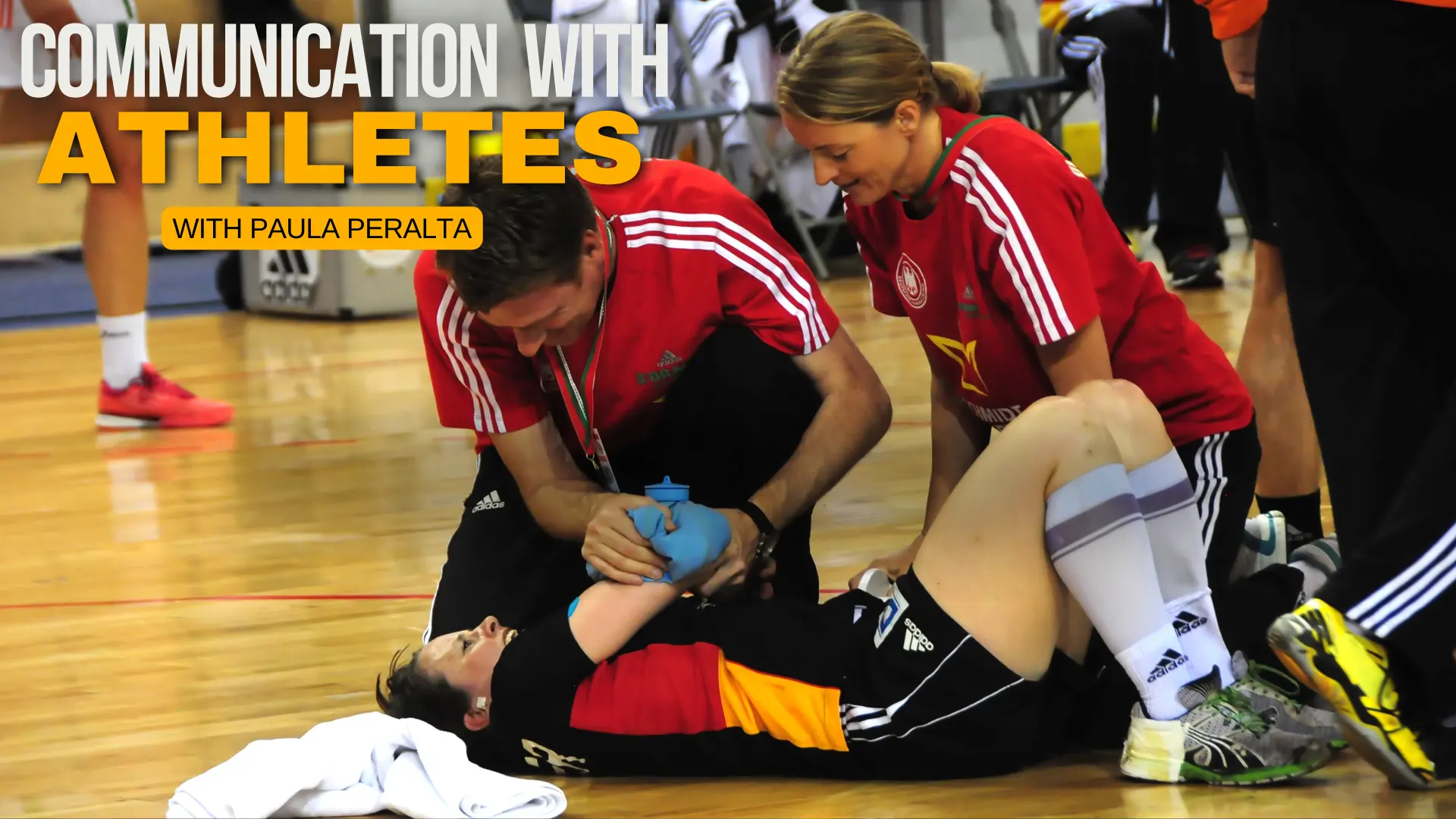Athletes’ fears around injuries and being ‘ruled out’ may cause late reporting of their injuries, leading to delayed treatment and additional loss of training time.
Other athletes may be used to passive treatment, telling you their shoulders or hamstrings are tight, and jump straight into prone on the treatment table, expecting a ‘flush’ or a ‘rub down’, rather than a proper assessment and other, more effective treatment.
You may also work with athletes with low energy availability (LEA), disordered eating (DE) and relative energy deficiency syndrome (RED-S), when energy deficiency results in impaired metabolic rate, menstrual function, bone health, immunity, protein synthesis and cardiovascular health.
Working with athletes places you in an ideal position to identify the issues they’re facing, and with effective communication and treatment strategies you can help your athletes overcome each of these challenges.
This new video 'Communication with Athletes - Part 1' with Paula Peralta, a seasoned Specialist Sports and Exercise Physiotherapist, is your essential guide to working with athletes.
Paula unpacks the complexities of assessing and treating athletes and sporting teams, whether on the field or in your clinic, drawing from her extensive experience and expertise working with professional, national, Commonwealth and Olympic athletes and teams, including the Australian Boomers at the recent Tokyo Olympics.
With this presentation you’ll be able to:
- Help athletes overcome their fears and report injuries earlier, so they can have earlier follow up and appropriate treatment, leading to less pain and lost training time.
- Ask sensitive questions to identify athletes experiencing or at risk of LEA or RED-S and where to refer patients with these potentially serious conditions.
- Provide athletes with a safe space where they feel comfortable sharing personal information.
- Understand where athlete screening fits into an injury risk reduction program.
- Effectively monitor and adjust training load to allow recovery from injury.
- Work with a high-performance or multidisciplinary team.
- Safely and effectively guide athletes return to sport.
This presentation is packed with real-life examples, practical tips, and strategies to enhance your communication skills. Transform your approach, build stronger relationships with your athletes, and contribute to their success both on and off the field.
CLICK HERE to improve your assessment & diagnostic skills with a free trial Clinical Edge membership

